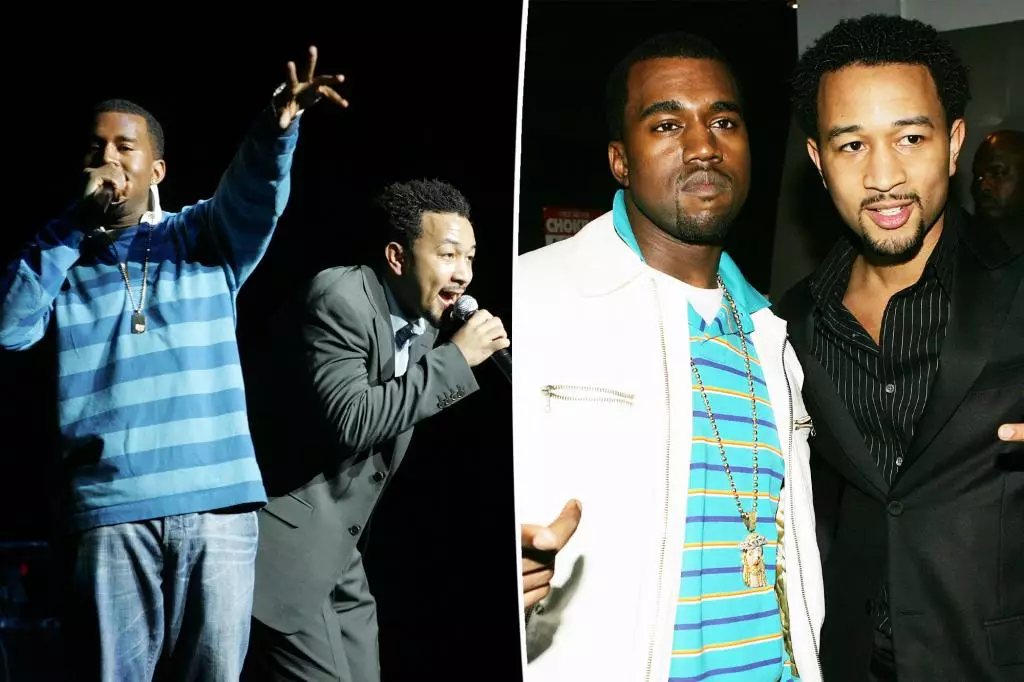Kanye West’s metamorphosis from an artistic genius to a divisive figure is a narrative that resonates deeply within the realms of music and popular culture. John Legend’s recent reflections shed light on the stark contrast between the Kanye West of the mid-2000s and the controversial persona he has become today. Their friendship once symbolized the triumph of talent and ambition; however, witnessing West’s troubling decline is a painful reminder of how personal turmoil can reshape one’s identity and public perception.
Back in the early days, as Legend reminisces, West was not just a friend but a beacon of inspiration and innovation. Described as “passionate” and “gifted,” the Kanye West of that era had dreams that extended beyond his own ambitions to uplift those around him. This optimism fostered creativity, sparking a wave of artistic expression that would eventually redefine the music industry. It was during this formative period that they joined forces, with Legend signing a record deal with West’s GOOD Music label, which would mark the beginning of a remarkable journey.
The Turning Point: From Friendship to Division
As Legend recounts their many years of camaraderie, he notes how West’s rise to fame was a shared experience. The success of “The College Dropout” opened doors for all involved, including Legend, who faced numerous rejections from record labels. It was a classic example of how collective success can be built on shared dreams and aspirations. However, with West’s increasing fame came a deviation from the ideals that once defined their bond.
The rupture in their relationship began to manifest after West’s vocal support for controversial figures, most notably Donald Trump, a move that left many, including Legend, bewildered. The rapper’s descent into what can only be described as a spiral of troubling behavior was not just shocking but heartbreaking. Legend’s dismay was palpable when he spoke about West’s newfound obsessions with antisemitism that seemed to surface abruptly.
The Shadow of Tragedy and Public Reaction
It is crucial to consider how personal loss, particularly the death of West’s mother, might have fundamentally altered his trajectory. Legend suggests that this tragedy marked a clear turning point, igniting a transformation that has led to West’s increasingly erratic behavior. The connection between trauma and mental health is overwhelmingly documented, yet witnessing it play out so publicly through West’s antics raises essential questions about accountability and support systems within the entertainment industry.
As the narrative surrounding West shifts from admiration to caution, it’s alarming to see his infamous proclamations that have crossed into deeply concerning territory — glorifying figures like Adolf Hitler and seemingly embracing neo-Nazi sentiments. These actions are not mere celebrity antics; they carry the weight of historical and cultural ramifications, igniting outrage and confusion among fans and critics alike.
In the eyes of many, including Legend, it becomes apparent that West is no longer just a controversial figure but emblematic of a larger issue — the struggles of mental health, the impact of fame, and the crucial conversations surrounding accountability and influence in popular culture. The poignant reflections from Legend serve as both a critique of a friend’s unraveling and a broader commentary on the evolution of celebrity and its effects on identity and society.
